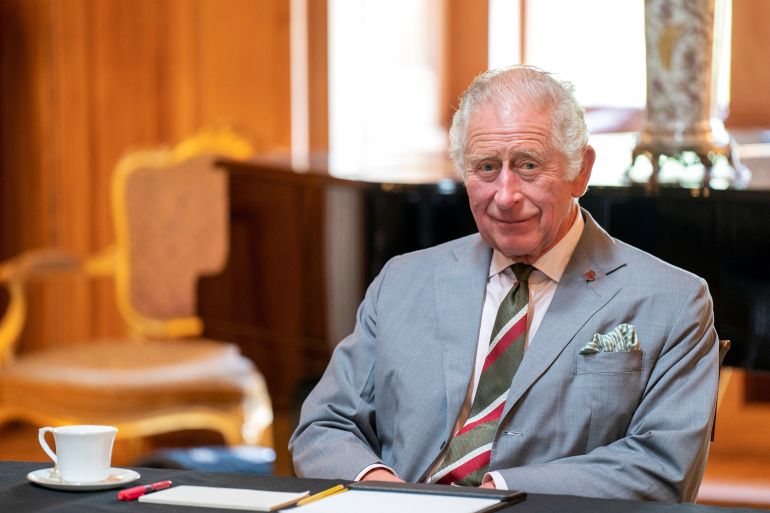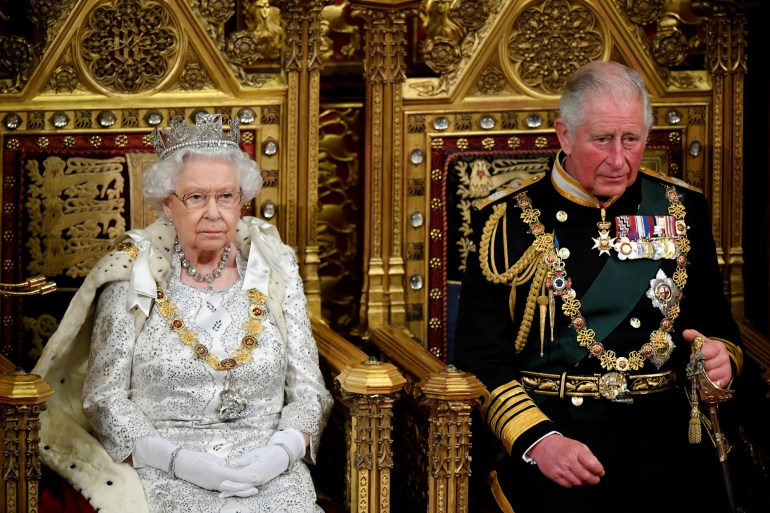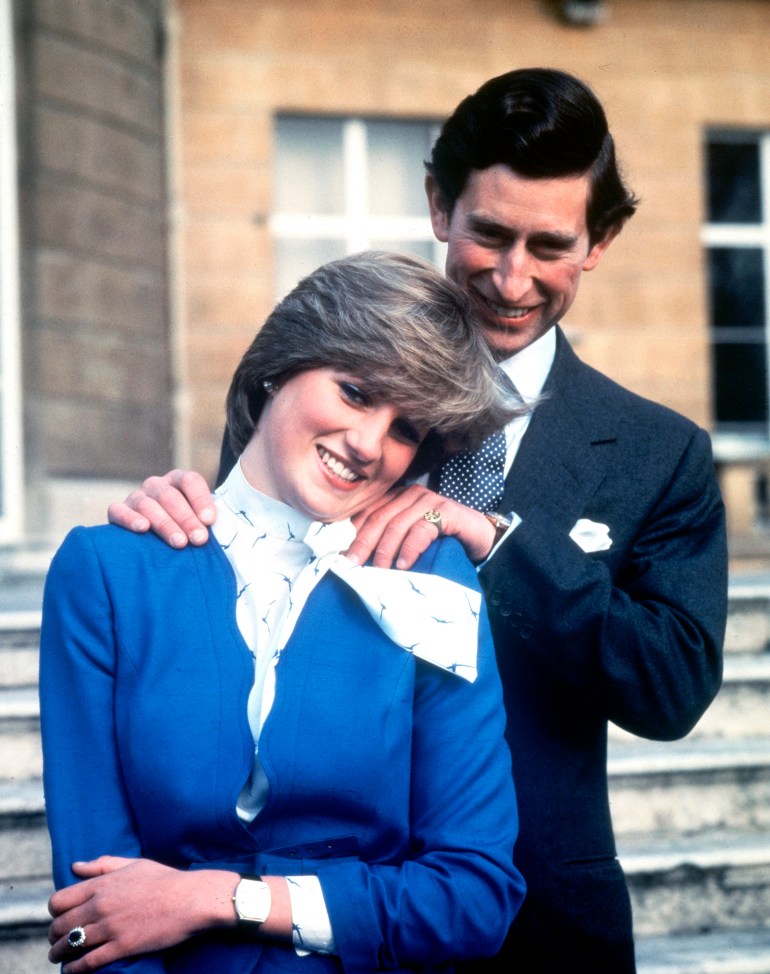Who is Britain’s King Charles III?
The 73-year-old grandfather of five will serve as the king of the UK and 14 other Commonwealth sovereign states.

Charles Philip Arthur George, the prince of Wales before the death of Britain’s Queen Elizabeth II, is now officially known as King Charles III.
He was born on November 14, 1948, and is the first-born son of Elizabeth and Philip. As monarch, the 73-year-old grandfather of five will serve as the king of the United Kingdom and 14 other Commonwealth sovereign states.
Keep reading
list of 3 itemsPrince Charles slams UK plan to send refugees to Rwanda: Reports
UK’s Prince Charles received $3.2m from former Qatar PM: Report
Described by biographers as “a sensitive man”, it is said that he is a keen gardener and enjoys tending to the organic garden in his countryside manor.
King Charles III said Queen Elizabeth II devoted her life ‘to the service of her peoples’ in his inaugural address after ascending to the throne ⤵️ pic.twitter.com/QHU7GovuKv
— Al Jazeera English (@AJEnglish) September 9, 2022
He is also believed to be a skilled watercolour painter and has interests in traditional countryside practices such as hedge laying.
As a young man, commentators say he did not have much in common with his parents, relations of which would improve as he got older.
He studied in Britain and Australia, reading archaeology, anthropology and history at Trinity College, Cambridge in the late 1960s before becoming a Royal Air Force (RAF) pilot.

Conducting royal service since the late 1970s, he was 30 years old when he married a shy 19-year-old nursery teacher named Lady Diana Spencer in 1981, a wedding that was watched by nearly 800 million people globally.
Two sons – Prince William, who was born on June 21 1982, and Prince Harry, born on September 15, 1984 – followed before the couple divorced in 1992.
Speculation about Prince Charles’s relationship with a former girlfriend named Camilla Parker Bowles continued after the divorce but it was not until 2005 that the couple finally took the step and tied the knot.
The prince has had to weather many scandals during the years, including after the death of Princess Diana in a car accident in Paris in 1996, as well as defending controversial comments and gaffes he has been criticised for.
Analysts say that as the king-in-waiting, the royals in recent years have been working to cultivate a particular image of him.

Laura Clancy, a lecturer in media at Lancaster University and author of Running the Family Firm: How the Monarchy Manages Its Image and Our Money, told Al Jazeera: “There have been concerted efforts to remake Charles’ image from the 1980s and 1990s, when the news around Diana was making him quite unpopular.”
“More recently, he seems to be being pictured as a grandfather – his 70th birthday photos, for example, included him sitting with his grandchildren in his garden and feeding chickens. This mirrors the kind of images we’ve seen of the queen as grandmother to the nation,” she added.
A founder and patron of a number of charities that focus on areas such as supporting young entrepreneurs, the natural and built environment and education, polls often showed his popularity remained relatively low compared with the queen and his son Prince William.
Anna Pasternak, a regular commentator on the royal family in the British media and the bestselling author of “The American Duchess, the Real Wallis Simpson”, told Al Jazeera that on championing political causes, he has shown good instincts.
“The problem with that, in terms of being the monarch of the country, is that you have to have a kind of stability, impartiality and benign neutrality, and we haven’t seen any of those qualities in Charles yet,” she said.
Having once said the most important thing about being king will be to have concern for people and provide some form of leadership, there have already been signs of the leadership qualities he will bring to the role.
“We know that he’s been less impartial and more open about his political views than the Queen. So is he going to be the activist king? Or is he going to fall immediately back into the mould of monarch of his mother? I don’t think he’ll do that because he’s a moderniser and he’ll want to be progressive,” Pasternak added.